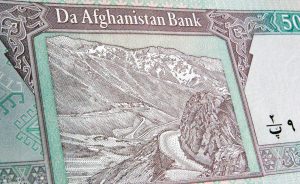For the past 20 years, Afghanistan has been one of the most aid-dependent countries in the world. With the Taliban takeover and the collapse of the U.S.-backed government, which donor countries had supported with pledges in the millions, international donors are halting the flow of aid for the time being.
On Wednesday, the World Bank reportedly halted aid to Afghanistan. Marcela Sanchez-Bender, a World Bank spokesperson said, “We have paused disbursements in our operations in Afghanistan and we are closely monitoring and assessing the situation in line with our internal policies and procedures.”
She added, “We are deeply concerned about the situation in Afghanistan and the impact on the country’s development prospects, especially for women.”
The World Bank’s decision came a week after the International Monetary Fund (IMF) halted Afghanistan’s access to IMF funds. An IMF spokesperson said, “As is always the case, the IMF is guided by the views of the international community. There is currently a lack of clarity within the international community regarding recognition of a government in Afghanistan, as a consequence of which the country cannot access SDRs [special drawing rights] or other IMF resources.”
According the BBC, the World Bank informed staff on August 20 that the organization’s Kabul-based team had been evacuated to Pakistan.
According to the World Bank, there were commitments for more than $784 million set for 2021. Since 2002, the World Bank has committed more than $5.3 billion to development and reconstruction projects in Afghanistan. Down from a high of around 100 percent in 2009, according to the World Bank, aid flows amounted to 42.9 percent of Afghan GDP in 2020.
It’s not just international financial institutions and aid that the Taliban are now cut off from. They aren’t able to access much of Afghanistan’s central bank reserves. Most of Afghanistan’s foreign reserves, reportedly around $9 billion, are actually stored in the Federal Reserve Bank of New York, a fact Taliban officials discovered shortly after arriving in Kabul in mid-August.
Ajmal Ahmady, former acting governor of the Afghan central bank, Da Afghanistan Bank, tweeted that while DAB reserves were around $9 billion, “this does not mean that DAB held $9.0 billion physically in our vault.” He explained that most of the assets were held in “safe, liquid assets such bas Treasuries [i.e. Treasury bonds] and gold.”
Per Ahmady, $7 billion of Afghanistan’s assets were held by the U.S. Federal Reserve, $3.1 billion in U.S. bills and bonds, $2.4 billion in World Bank Reserve Advisory & Management Partnership (RAMP) assets, $1.2 billion in gold, and just $300,000 in cash. A further $1.3 billion was being held in international accounts. Ahmady explained that DAB was “reliant on obtaining physical shipments of cash every few weeks,” and pointed to a Wall Street Journal report that the Biden administration had cancelled shipments as the Taliban approached Kabul.
Ahmady’s explainer was prompted by him being told the Taliban were asking DAB staff where all the assets were. He also commented: “If this is true – it is clear they urgently need to add an economist on their team.”
The United States government, in addition to halting cash shipments, has frozen Afghan assets. A Biden administration official told the Washington Post, “Any central-bank assets the Afghan government have in the United States will not be made available to the Taliban.”
With little cash on hand, the Taliban will face a financial crunch soon. While the group has its own sources of funding that have sustained it — such as from the drug trade — taking power in Kabul means taking over a government system again. And governments are expensive to run effectively.
Afghans are already struggling to get their hands on cash to buy basic goods, with reports of long lines at banks and empty ATMs in Kabul. The pain of the cash shortage is amplified by inflation, with prices rising as the Afghan currency, the afghani, collapses.
Uncertainty prevails as to what kind of government the Taliban will establish; that is a critical question for both international players currently holding Afghanistan’s reserves and the aid agencies pausing their projects and funding.

































